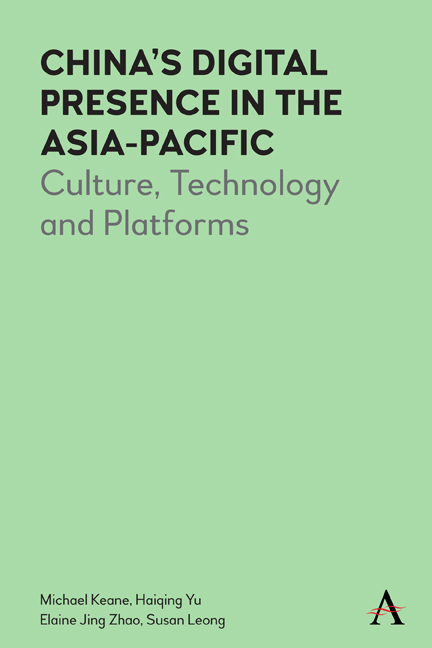6 - East Asia: Hong Kong and Taiwan
Published online by Cambridge University Press: 20 January 2022
Summary
Culturally and geographically proximate to the Chinese mainland, Hong Kong Special Autonomous Region (HKSAR) and Taiwan have many reasons to tap into the developments unleashed by Internet +. Whereas three decades ago Hong Kong and Taiwan were the economic drivers of a region referred to by some economists as The China Circle, ‘mainland China’ has rapidly ascended as an economic powerhouse. Both Hong Kong and Taiwan face increasing economic uncertainties and these uncertainties provide many incentives to integrate with the powerful mainland. However, with the growing politicization of society in the mainland under the Xi regime, the term ‘integration’ takes on different nuances.
This chapter explores how digital platforms from mainland China are expanding into Hong Kong and Taiwan. The examples come from videostreaming providers iQiyi and LeTV, which offer professionally produced content, as well as the short-form video-sharing app TikTok, which aggregates non-professional content. While political advocacy in mainland China has seen the ‘going-out’ strategy gaining momentum since the early 2000s, commercial imperatives provide an even stronger motivation for market expansion. Hong Kong and Taiwan are prime markets with Chinese-speaking populations ready-made for expansion. Moreover, internet infrastructures in these territories are highly developed. Users can access high-speed internet at relatively low cost. Users’ potential willingness to pay for content adds further to the commercial appeal of these markets.
The introductory section considers the disappearance –and reappearance –of identity in these territories as the mainland exerts increasing political control. Over the past two decades Hong Kong and Taiwan have ‘told Chinese stories well’, that is, according to audiences. But will future audiences be as receptive to Chinese stories embellished with the creative skills of professionals from Hong Kong and Taiwan? The online video platform owned by Baidu, iQiyi, provides an illustrative example of how a mainland China-based service provider has sought to circumvent regulatory barriers in Taiwan and how it has subsequently modified its content offerings, taking advantage of the increasing professionalization of mainland entertainment shows and television formats featuring celebrities from both Hong Kong and Taiwan.
- Type
- Chapter
- Information
- China’s Digital Presence in the Asia-PacificCulture, Technology and Platforms, pp. 101 - 118Publisher: Anthem PressPrint publication year: 2020



